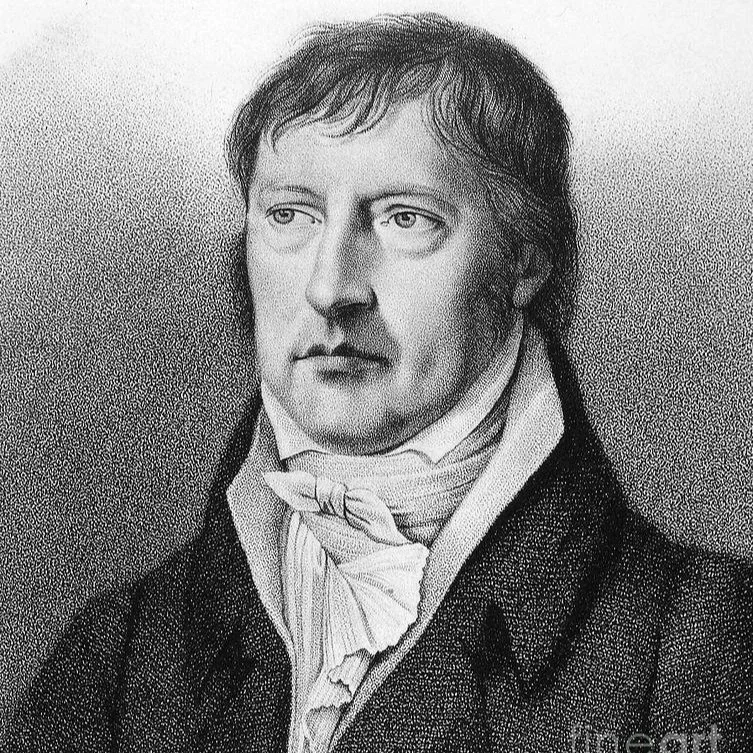In this paper, I contrast – but also compare – Husserl’s philosophy of the Self, first, to Kant’s and, second, to Descartes, with particular focus on its transcendental iteration, and its relationship both to the empirical and to objective reality.
All in Philosophy
The Hegelian self as Spirit
Hegel’s conception of selfhood is amorphous, and gleaning it from the pages of his dense and complex tome, The Phenomenology of Spirit, is no mean feat. However, the picture of Hegelian self which reveals itself to the reader patient enough to tease it out from the idealist Titan’s pages, is as intriguing and it is nuanced and complex.
Hume's Self as a 'Theatre of Perceptions'
Descartes’ ‘epistemological turn’ would influence generations of philosophers who, in an attempt to understand the structure of the self, took him – either directly or indirectly – as the starting point of their own reflections. Among the most prominent of these undoubtedly is David Hume.
Descartes' Cogito and the Birth of the Modern Self
It can with little exaggeration be said that, with the works of Descartes, the modern philosophy of the self was born. Where for the Medievals, the self had first and foremost been a metaphysically conceived entity, Descartes would invert this primacy, outlining instead a self whose basic structure is epistemic in nature.
The Kantian Self
What is the self? Is it a unity or a chimera? Can there be said to be a ‘self’ at all? Of all Enlightenment philosophers, it is perhaps Immanuel Kant who gave, to these questions, the most startlingly original answers.
Metaphysical Love as a Socratic Question
Socrates was used as a literary mouthpiece by many of the so-called 'Socratics', followers of the infamous 'Gadfly' who themselves went on to have illustrious careers as writers and thinkers. Several of these - chiefly Plato, Xenophon and Aeschines - depicted their master as a philosopher and fine connoisseur of that greatest of human pleasures and agonies: love.
The Finite and the Infinite in Kierkegaard
For Kierkegaard, the self was a synthesis of the ‘finite’ and the ‘infinite’. The finite is the limiting factor, all that which we cannot change, and the infinite is the expanding factor, all that which could just as well be some other way.
Kant and the Death of God
In this paper, I attempt to explore he idea that Kant ‘killed’ god – and I will do so chiefly by applying Kant’s refutations of the ontological proof to some of its most prominent instantiations through history, those of Anselm, Descartes and Spinoza.
Rousseau’s Second Discourse
The picture that emerges, in Rousseau’s Discourse on the Origin of Inequality among Men, of man’s original psychology is one highly idealised, you might even say romanticised: one in which our darker innate impulses are either minimised or discarded altogether.
Epistemological Diremption in Hegel
In this short commentary, I set out to explore the idea of epistemological diremption - which, for Hegel, lies at the kernel of the origin of philosophy itself - particularly as discussed in the introduction of the Phenomenology of Spirit.
Descartes and the Rationalists
With his Discourse on Method (1637), Descartes turned on their head certain basic assumptions that had dominated the Medieval mindset, and ushered in a new era of philosophical inquiry.
Hegel and the German Idealists
At the turn of the 19th century, a group of German philosophers would take changes in epistemology set in motion by Immanuel Kant, and lay them at the foundation of a bold new way of doing metaphysics. These were the so-called Idealists.
Mirandola's Renaissance Manifesto
Florentine philosopher, Pico della Mirandola’s Oration on the Dignity of Man has been called the ‘Manifesto of the Renaissance’ – and for good reason. To fifteenth-century readers, it would have seemed titillatingly, even dangerously humanistic.
Logos: Mind of God
The impact of the slippery Greek term ‘Logos’ on Medieval philosophy is so immense, that any competent analysis of Christian doctrine is now impossible without a thorough understanding of it.
Augustine's City of God
When Rome was sacked by the Visigoths in CE 410, Saint Augustine of Hippo could hardly have imagined that the event would inspire some of his most enduring contributions to medieval philosophy.
Twentieth-Century Nihilism: Death of God
‘God is dead’, to Nietzsche, meant ‘god is irrelevant’ (which, needless to say, wouldn’t have had the same ring to it). Given the philosopher’s strong atheistic bent, it doubtless also meant ‘god never existed at all’.
Age of Reason
By what means does knowledge enter our awareness? How can we be certain of the truth of the ideas we possess? It would be the task of the Enlightenment to address these queries; to dissect man’s inner spark, understand it, and give it its proper name: Reason.
















